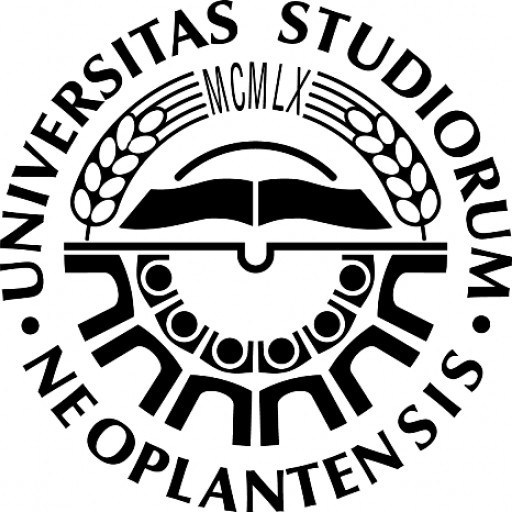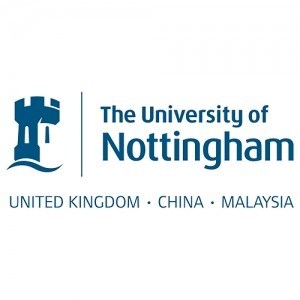Photos of university / #vubrussel
The Bachelor of Applied Computer Science at the Free University of Brussels is a comprehensive and innovative program designed to equip students with the essential knowledge and practical skills needed to excel in the rapidly evolving field of computing. This program offers a solid foundation in fundamental principles of computer science, including programming, algorithms, data structures, software engineering, and systems analysis. Emphasizing a hands-on approach, students gain valuable experience through real-world projects, internships, and laboratory work, ensuring they are well-prepared for both the workforce and further academic pursuits. The curriculum also covers emerging areas such as cyber security, artificial intelligence, machine learning, and data analytics, reflecting current industry trends. Throughout the program, students are encouraged to develop critical thinking, problem-solving abilities, and innovative design skills, enabling them to contribute effectively to technological advancements and digital transformation across various sectors. The university’s state-of-the-art facilities and close collaboration with industry partners provide a stimulating environment for learning and professional growth. Graduates of this program will be capable of designing, developing, and maintaining advanced computing systems and software solutions, as well as managing IT projects and teams. The program also prepares students for postgraduate studies, research, and specializations in computer science and related domains. With a curriculum that balances theoretical foundations with practical applications, the Bachelor of Applied Computer Science at the Free University of Brussels aims to foster versatile, skilled, and adaptable professionals ready to meet the demands of a digital world.
The Bachelor of Applied Computer Science at the Free University of Brussels offers a comprehensive curriculum designed to equip students with a solid foundation in computer science principles, programming skills, and practical applications. Throughout the program, students engage with core topics such as algorithms, data structures, software engineering, databases, networking, and cybersecurity, ensuring a well-rounded understanding of the field. The program emphasizes hands-on learning through laboratory work, programming projects, and collaborative assignments, enabling students to develop problem-solving skills and adapt to rapidly evolving technological landscapes.
In addition to technical expertise, students explore areas such as software development methodologies, user interface design, and system integration, preparing them for various roles in the IT industry. The programme also incorporates courses on mathematical foundations, including discrete mathematics and logic, which are essential for understanding complex computational problems. Ethical considerations and the societal impact of technology are integrated into the curriculum, fostering responsible and informed IT professionals.
Practical training is a key component of the programme, with opportunities for internships and industry collaborations that provide real-world experience. The programme's structure supports the development of both technical competencies and soft skills such as teamwork, communication, and project management, which are vital for successful careers in applied computer science.
Graduates from this programme are well-prepared to pursue careers in software development, systems analysis, database management, network administration, cybersecurity, and other IT-related fields. They also have a solid foundation for advanced studies or specialized certifications in computer science and information technology. With a curriculum aligned to the latest industry standards and technological advancements, the Applied Computer Science programme at the Free University of Brussels aims to produce innovative, competent, and ethical IT professionals ready to meet the demands of the digital age.
The Bachelor of Applied Computer Science at Free University of Brussels requires applicants to possess a secondary education diploma that provides suitable preparation for university studies, such as a high school diploma with a focus on mathematics and sciences. Prospective students should demonstrate proficiency in Flemish, French, or English, depending on the language of instruction, and may need to submit standardized test scores or language certificates as proof. The program emphasizes a solid foundation in computer science principles, programming methodologies, algorithms, data structures, and computational theory. Students are expected to complete a series of core courses in programming languages like Python, Java, and C++, alongside classes in systems analysis, database management, software engineering, and information technology infrastructure.
In addition to theoretical coursework, the program incorporates practical lab sessions, group projects, and internships to develop hands-on skills. To facilitate this experiential learning, students are encouraged to participate in cooperative education opportunities with industry partners, which are integrated into the curriculum. The program also includes modules on digital security, artificial intelligence, machine learning, and data science, reflecting current industry trends and demands. To successfully graduate, students must earn a minimum number of credits, typically around 180 ECTS, by completing required courses, elective modules, and a final project or thesis that demonstrates their technical expertise and problem-solving abilities. The program aims to prepare graduates for careers in software development, IT consultancy, system analysis, network administration, and other related fields, as well as for further studies at the master's level in computer science or applied sciences.
The financing studies for the Applied Computer Science program at the Free University of Brussels typically encompass a variety of funding options available to both domestic and international students. Students are encouraged to explore a range of financial support mechanisms, including government grants, scholarships, student loans, and work-study programs. The university offers several scholarships based on academic merit, financial need, or specific criteria such as nationality or field of study. For Belgian and EU students, funding opportunities may include grants provided by the Belgian government or regional authorities, which aim to support students throughout their studies. International students are also advised to seek scholarships from their home countries or international organizations that support higher education.
In addition to scholarships, students can consider student loans available through financial institutions or government programs designed to facilitate access to higher education. The university also promotes part-time work opportunities, allowing students to earn income while studying and offset living expenses. These employment opportunities are often available on campus or through local partnerships, providing flexible options for students balancing work and studies.
The tuition fees for the Applied Computer Science program are set by the university and vary depending on the student’s nationality and residency status. Belgian and EU students benefit from reduced tuition fees, whereas non-EU students may pay higher rates. The university provides detailed information about the fee structure on its official website and encourages students to plan their finances accordingly. Financial aid programs and emergency funds are also available for students facing unforeseen financial difficulties, ensuring that all students can continue their education without interruption.
Students are advised to contact the university's student financial services for personalized guidance and to explore all available funding options. Early application for scholarships and financial aid is recommended to ensure eligibility and to allow sufficient time for processing. The university’s commitment to accessibility and support aims to minimize financial barriers, enabling talented students from diverse backgrounds to pursue their studies in Applied Computer Science successfully. Ultimately, careful financial planning and utilizing the resources offered by the university and external organizations can significantly assist students in funding their education and achieving their academic and professional goals.
The Bachelor of Applied Computer Science program at the Free University of Brussels (VUB) is designed to provide students with a comprehensive education in the fundamentals and practical applications of computer science. The curriculum emphasizes both theoretical foundations and hands-on experience, preparing graduates for diverse careers in information technology, software development, system analysis, and other related fields. Throughout the program, students gain knowledge in programming languages, algorithms, data structures, databases, and network systems, alongside modules focused on computer architecture, cybersecurity, and software engineering.
The program often incorporates project-based learning, where students work on real-world problems, fostering skills in teamwork, problem-solving, and project management. Additionally, the curriculum may include internships or collaboration with industry partners, giving students valuable practical exposure and insights into current technological trends and challenges. Specializations or elective courses allow students to tailor their studies towards areas such as artificial intelligence, machine learning, data science, or cybersecurity.
Students are also encouraged to develop soft skills such as communication, critical thinking, and ethical considerations related to technology. The faculty comprises experienced academics and industry professionals dedicated to delivering high-quality education and research opportunities. Graduates of this program are well-equipped to pursue careers in various sectors, including IT companies, governmental agencies, or to continue with postgraduate studies. The program’s structure aims to bridge theoretical knowledge with practical skills, ensuring students are ready to meet the demands of the rapidly evolving digital landscape.
The language of instruction is primarily English, attracting international students and fostering a multicultural learning environment. The program typically spans three years for a full-time student and may be offered in various formats, including part-time options or blended learning. Facilities at the university include modern laboratories, computer clusters, and resources designed to support innovative learning and research in applied computer science fields. The degree awarded upon successful completion qualifies graduates for roles such as software developer, systems analyst, network administrator, or cybersecurity specialist, positioning them effectively for the digital economy.
The Free University of Brussels maintains strong links with industry partners and professional organizations, providing students with networking opportunities and career support. Emphasis is placed on ethical and sustainable practices in technology development, preparing students not only for technical challenges but also for responsible innovation in the digital age. The program aligns with the university’s broader mission to foster scientific excellence, societal engagement, and lifelong learning, ultimately empowering graduates to contribute meaningfully to the technological advancement and economic development of their communities.






